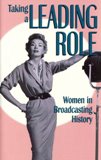I never watched Boston Legal except for catching snippets every so often. I limit myself to two shows on a regular basis (they’d be House and Curb Your Enthusiasm).
 Obviously, I try to catch as many commercials as possible. That’s why I don’t have TiVo. I asked some fellow at the electronics store if you could program TiVo to only record commercials. He didn’t know – but did seem to know that he was talking to a lunatic.
Obviously, I try to catch as many commercials as possible. That’s why I don’t have TiVo. I asked some fellow at the electronics store if you could program TiVo to only record commercials. He didn’t know – but did seem to know that he was talking to a lunatic.
An article about Boston Legal’s final episode:
Kelley, Like 'Boston Legal,' Won't Go Quietly
By Lisa DeMoraes
 … In last week's episode of "Boston Legal," John Larroquette, who plays Carl Sack, a senior partner in the firm, represented Betty White, who was suing the broadcast networks for age discrimination because they do not program to viewers over the age of 50 … "The baby boomers, now all over 50, earn $42 trillion in annual income. That's trillion!" Larroquette continues, warming up to his subject.
… In last week's episode of "Boston Legal," John Larroquette, who plays Carl Sack, a senior partner in the firm, represented Betty White, who was suing the broadcast networks for age discrimination because they do not program to viewers over the age of 50 … "The baby boomers, now all over 50, earn $42 trillion in annual income. That's trillion!" Larroquette continues, warming up to his subject.
"Madison Avenue is after the discretionary spender," shoots back Bald Lawyer Guy, representing the broadcast networks.
 "Yes, and people over 50 account for half of that, too," Larroquette responds coolly. "Choose your statistic. Go ahead. I've got you. We've got more money. We spend more money. We watch more televisions, go to more movies, we buy more CDs than young people do and yet we're the focus of less than 10 percent of the advertising. All the networks want to do is skew younger. Kids shows for kids. You know, the only show unafraid to have its stars over 50 is 'Bos -- ' gee, I can't say it. It would, um, break the wall," Larroquette says, signaling the wall between him and viewers watching at home ...
"Yes, and people over 50 account for half of that, too," Larroquette responds coolly. "Choose your statistic. Go ahead. I've got you. We've got more money. We spend more money. We watch more televisions, go to more movies, we buy more CDs than young people do and yet we're the focus of less than 10 percent of the advertising. All the networks want to do is skew younger. Kids shows for kids. You know, the only show unafraid to have its stars over 50 is 'Bos -- ' gee, I can't say it. It would, um, break the wall," Larroquette says, signaling the wall between him and viewers watching at home ...
Whoever David E. Kelley is, I like him.
I also like this blogger. He sounds a lot like me over the last five years:
Madison Avenue Just Doesn’t Get It
Richard Ungar
… Once the boomers passed the magic age of 49, our ranks continued to be a very significant economic force-but the current generation of broadcast television programmers didn’t get the memo …

 The AARP “Best Employers for Workers Over 50”
The AARP “Best Employers for Workers Over 50”
 The AARP International Innovative Employer Award
The AARP International Innovative Employer Award Deloitte survey shows we’re living in a “media democracy”
Deloitte survey shows we’re living in a “media democracy”

 Deloitte’s 2007 State of the Media Democracy Survey
Deloitte’s 2007 State of the Media Democracy Survey
 His new book iBrain: Surviving the Technological Alteration of the Modern Mind is getting great reviews
His new book iBrain: Surviving the Technological Alteration of the Modern Mind is getting great reviews









 Ecologies of Risk
Ecologies of Risk








 Step back into time: Gifts for nostalgic and sentimental baby boomers
Step back into time: Gifts for nostalgic and sentimental baby boomers
 Let’s Go Holiday Shopping!
Let’s Go Holiday Shopping!
![advdiabetesthumb[1] advdiabetesthumb[1]](https://blogger.googleusercontent.com/img/b/R29vZ2xl/AVvXsEjP0LhTL-QXit1z6ZEsU6iPNkJ5eU1i4iXHkOeFxgqJb21ed-dcECqR5c4ayunoBul9OOGC4yonIf6zOk-goPxhSdoX2USng2bWEPzlP5qW4w2TC44rWlXAcBW7EqjA3zHlzV9mYQ/?imgmax=800)


 Social Networking Traffic Up as Advertising Falls Flat
Social Networking Traffic Up as Advertising Falls Flat









